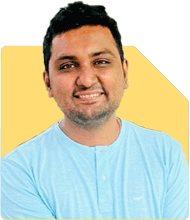R P Yadav | Answer |Ask -Follow
HR, Workspace Expert - Answered on Jan 30, 2024
Over the years, he has been the recipient of numerous awards including the Lifetime Achievement Award from World HR Congress and HR Person Of The Year from Public Relations Council of India.
... more

I have 18 years IT experience as Developer,team lead,Manager. Have done fairly well in career so far. But I am not really enjoying people management and team leading. I switched job in 2021 consciously took a senior developer role. Very happy with this role, but issue is after some time companies expect you to lead teams. Financially I am good, and no dependents. Ready to take a pay cut. What other career options/ line of work can I do? Wish to remain in IT ? To summarize, I wish to remain an individual contributor. Kindly reply
Technical Architect: As a technical architect, you will be responsible for designing and implementing complex software systems. You will work closely with developers and other stakeholders to ensure that the system meets the business requirements and is scalable, secure, and maintainable.
Data Scientist: As a data scientist, you will be responsible for analyzing large datasets to identify patterns and trends. You will use statistical and machine learning techniques to develop predictive models that can be used to make informed business decisions.
DevOps Engineer: As a DevOps engineer, you will be responsible for developing and maintaining the infrastructure that supports the software development process. You will work closely with developers to ensure that the software is deployed and tested efficiently and reliably.
Technical Writer: As a technical writer, you will be responsible for creating documentation that explains complex technical concepts in a clear and concise manner. You will work closely with developers and other stakeholders to ensure that the documentation is accurate and up-to-date.
Software Quality Assurance Engineer: As a software quality assurance engineer, you will be responsible for ensuring that the software meets the required quality standards. You will work closely with developers to identify and fix defects in the software.
These are just a few examples of the many career options available to you as an experienced IT professional. I hope this helps you in your search for a fulfilling career. If you have any further questions or concerns, please let me know.
You may like to see similar questions and answers below
Krishna Kumar | Answer |Ask -Follow
Workplace Expert - Answered on Feb 13, 2024
Abhishek Shah | Answer |Ask -Follow
HR Expert - Answered on Aug 23, 2023
Mayank Rautela | Answer |Ask -Follow
HR Expert - Answered on Nov 19, 2023
Krishna Kumar | Answer |Ask -Follow
Workplace Expert - Answered on Aug 09, 2024
Dr Dipankar Dutta |1836 Answers |Ask -Follow
Tech Careers and Skill Development Expert - Answered on Dec 05, 2025
Ulhas Joshi |280 Answers |Ask -Follow
Mutual Fund Expert - Answered on Dec 05, 2025
Dr Dipankar Dutta |1836 Answers |Ask -Follow
Tech Careers and Skill Development Expert - Answered on Dec 04, 2025
Ravi Mittal |676 Answers |Ask -Follow
Dating, Relationships Expert - Answered on Dec 04, 2025
Anu Krishna |1745 Answers |Ask -Follow
Relationships Expert, Mind Coach - Answered on Dec 04, 2025
Anu Krishna |1745 Answers |Ask -Follow
Relationships Expert, Mind Coach - Answered on Dec 04, 2025
Mayank Chandel |2562 Answers |Ask -Follow
IIT-JEE, NEET-UG, SAT, CLAT, CA, CS Exam Expert - Answered on Dec 04, 2025
Mayank Chandel |2562 Answers |Ask -Follow
IIT-JEE, NEET-UG, SAT, CLAT, CA, CS Exam Expert - Answered on Dec 04, 2025
Mayank Chandel |2562 Answers |Ask -Follow
IIT-JEE, NEET-UG, SAT, CLAT, CA, CS Exam Expert - Answered on Dec 04, 2025
Mayank Chandel |2562 Answers |Ask -Follow
IIT-JEE, NEET-UG, SAT, CLAT, CA, CS Exam Expert - Answered on Dec 04, 2025



























